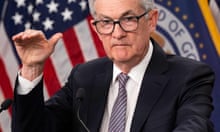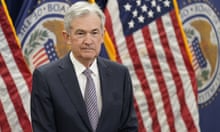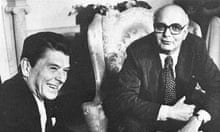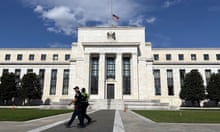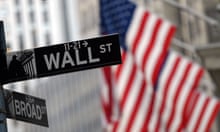Jerome Powell’s handling of the economic fallout from the Covid-19 pandemic has won the chair of the Federal Reserve the backing of the White House for a second term running the world’s most important central bank.
Despite speculation that he might sack Donald Trump’s appointee, Joe Biden cited the “decisive action” taken by Powell during the early stages of the crisis as a reason to reappoint the 68-year-old Republican for another four years.
The White House said Lael Brainard – the only Democrat on the Fed board, whom some had tipped as a possible replacement for Powell – was its choice to become the vice-chair.
The nominations hark back to a tradition of a non-partisan approach to the top job at the Fed that was broken by Trump. Some progressive Democrats had called for Biden to follow the same approach and appoint Brainard in Powell’s place.
Both nominations are subject to approval by a Democrat-controlled Congress and come at a time when the Fed is grappling with an annual inflation rate of 6.2% – the highest level in more than three decades.
“As I’ve said before, we can’t just return to where we were before the pandemic, we need to build our economy back better, and I’m confident that Chair Powell and Dr Brainard’s focus on keeping inflation low, prices stable, and delivering full employment will make our economy stronger than ever before,” Biden said.
After nominating Powell to run the Fed, Trump seemed to regret his choice and subjected the former investment banker to repeated criticism for his refusal to provide as much stimulus for the economy as the then president demanded.
But the central bank moved swiftly when the global economy and the world’s financial markets were shaken by the arrival of Covid-19 in early 2020. US interest rates were cut to nea zero and the Fed resumed bond-buying that would result in its holdings of US Treasury bonds and other securities increasing by $4tn (£3tn).
“Chair Powell has provided steady leadership during an unprecedentedly challenging period, including the biggest economic downturn in modern history and attacks on the independence of the Federal Reserve,” the White House statement said.

